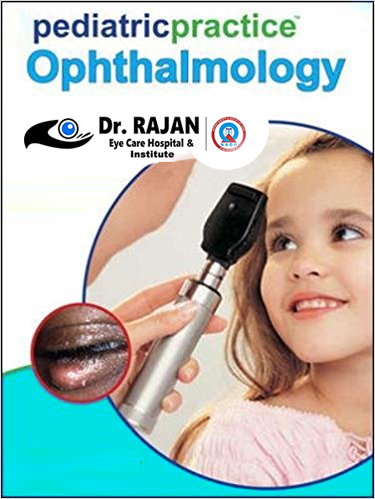
Many eye problems can affect vision and overall eye health. Here’s a list of some common eye conditions:
- Refractive Errors
Myopia (Nearsightedness): Difficulty seeing distant objects clearly.
Hyperopia (Farsightedness): Difficulty seeing close objects clearly.
Astigmatism: Blurred vision due to an irregularly shaped cornea or lens.
Presbyopia: Age-related difficulty in seeing close objects, typically beginning after age 40. - Cataracts
Clouding of the eye’s natural lens, leading to blurry vision and glare, especially in older adults. - Glaucoma
A group of eye conditions that damage the optic nerve, often due to high intraocular pressure, leading to gradual vision loss if untreated. - Macular Degeneration (AMD)
A condition that affects the macula, the central part of the retina, causing loss of central vision, common in older adults.
Dry AMD: Gradual loss of central vision.
Wet AMD: Sudden, severe loss of central vision due to abnormal blood vessels growing under the retina. - Diabetic Retinopathy
Damage to the retina’s blood vessels due to uncontrolled diabetes, leading to vision loss or blindness. - Conjunctivitis (Pink Eye)
Inflammation of the conjunctiva (the membrane covering the white part of the eye), often caused by infections (bacterial or viral), allergies, or irritants. - Dry Eye Syndrome
Insufficient tear production or poor tear quality, causing dryness, irritation, and discomfort. - Retinal Detachment
A medical emergency where the retina pulls away from the underlying tissue, leading to potential vision loss if not treated promptly. - Floaters and Flashes
Small spots or strings that drift across the field of vision, often harmless, but sudden increases or flashes of light could signal retinal issues. - Keratitis
Inflammation of the cornea, often caused by infections, injury, or wearing contact lenses too long. - Amblyopia (Lazy Eye)
Poor vision development in one eye due to unequal visual input between the two eyes during childhood. - Strabismus (Crossed Eyes)
Misalignment of the eyes, where one or both eyes point in different directions. - Uveitis
Inflammation of the uvea, the middle layer of the eye, often linked to autoimmune conditions or infections. - Blepharitis
Inflammation of the eyelids, often due to clogged oil glands near the eyelashes, leading to red, swollen, and itchy eyelids. - Eye Allergies
Allergic reactions to pollen, dust, or pet dander, leading to itchy, red, and watery eyes.
These conditions vary in severity, but early detection through regular eye exams can help manage or prevent vision loss in many cases.
How to protect eyes from common eye problems
Maintaining good eye health and reducing the risk of common eye problems involves adopting a proactive and healthy lifestyle, along with regular eye care practices. Here’s a guide on how to keep your eyes safe from common issues:
- Regular Eye Exams
Routine Check-ups: Get regular eye exams, even if you don’t have vision problems. Comprehensive eye exams can detect early signs of diseases like glaucoma, cataracts, or macular degeneration.
Adults: Every 1-2 years for adults, especially after age 40.
Children: Regular eye exams starting at 6 months, and then before school age. - Protect Your Eyes from UV Light
Sunglasses: Wear UV-blocking sunglasses to protect your eyes from harmful ultraviolet (UV) rays, which can contribute to cataracts, macular degeneration, and pterygium (growth on the white of the eye).
Hats: Use a wide-brimmed hat when outdoors to further reduce UV exposure. - Healthy Diet for Eye Health
Leafy Greens: Kale, spinach, and other green vegetables are rich in antioxidants like lutein and zeaxanthin, which protect the eyes from age-related damage.
Omega-3 Fatty Acids: Found in fish like salmon, they help prevent dry eyes and support overall eye health.
Vitamin A & C: Carrots, sweet potatoes, and citrus fruits are excellent for eye health.
Zinc & Vitamin E: Nuts, seeds, and legumes also help in maintaining healthy vision. - Maintain Proper Screen Habits
Follow the 20-20-20 Rule: To prevent digital eye strain, every 20 minutes, look at something 20 feet away for at least 20 seconds.
Blink Often: Blinking more while using digital devices keeps your eyes moist.
Screen Distance and Positioning: Keep screens at arm’s length and slightly below eye level to reduce strain. - Keep Your Eyes Hydrated
Stay Hydrated: Drink plenty of water to keep your body and eyes hydrated.
Use Artificial Tears: If you experience dry eyes, especially from long hours on screens or in dry environments, use over-the-counter artificial tears for relief. - Use Protective Eyewear
For Hazardous Work: Wear safety goggles when working with tools, chemicals, or in environments with potential eye hazards.
Sports: Wear sports-specific protective eyewear for activities like racquetball, swimming (to prevent chlorine irritation), or any high-impact sports. - Avoid Smoking
Smoking Risks: Smoking increases the risk of eye diseases such as cataracts, macular degeneration, and diabetic retinopathy.
Quit Smoking: If you smoke, quitting will improve your overall eye health. - Manage Health Conditions
Control Blood Sugar Levels: If you have diabetes, control your blood sugar to prevent diabetic retinopathy and other vision-related complications.
Maintain Healthy Blood Pressure and Cholesterol: High blood pressure and cholesterol can contribute to eye diseases by damaging blood vessels in the eyes. - Limit Eye Makeup & Contact Lens Care
Remove Makeup Before Sleeping: Prevent infections by thoroughly removing eye makeup every night.
Clean Contact Lenses Properly: If you wear contacts, follow proper hygiene and cleaning routines to avoid infections like keratitis.
Replace Contacts as Recommended: Don’t overuse disposable contacts, and follow the schedule prescribed by your optometrist. - Treat Eye Allergies
Avoid Triggers: Identify and avoid allergens that cause irritation, like pollen, dust, or pet dander.
Use Allergy Eye Drops: Over-the-counter or prescription drops can help reduce redness and itching during allergy season. - Be Aware of Symptoms
Watch for Warning Signs: Sudden changes in vision, such as blurriness, floaters, flashes of light, or pain, require immediate attention from an eye specialist. These can be signs of serious conditions like retinal detachment or glaucoma. - Rest and Sleep
Adequate Sleep: Proper rest helps refresh your eyes and reduces dryness, fatigue, and irritation.
By incorporating these habits, you can greatly reduce your risk of developing common eye problems and protect your vision throughout your life. Visit today Eye Specialist in Phagwara & get rid of eye problem


